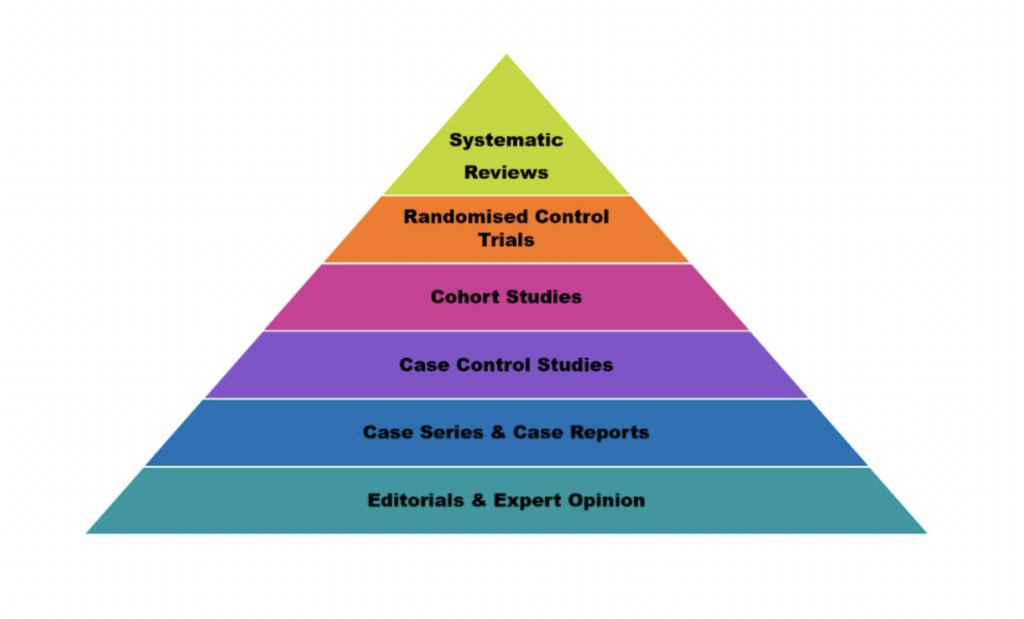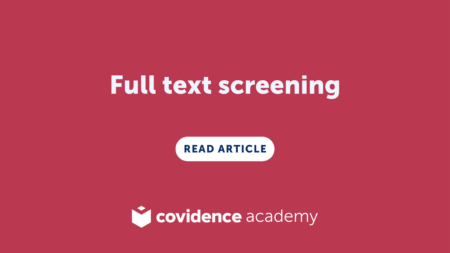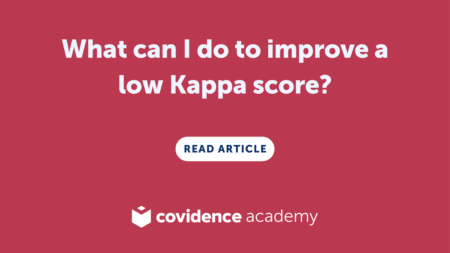Systematic reviews are generally considered the most reliable source of evidence for decision making because they apply prespecified scientific methods to a synthesis of all the information on a given research question 🙌. Their value in decision making and guideline development is widely recognised by consumers, researchers, patients and clinicians.
I’m sure many of you will have seen an image like this before with systematic reviews seen at the top of the pyramid of evidence and less rigorous study designs further down the hierarchy.

As you move down the hierarchy there is a higher risk of bias in terms of population selection and selective reporting that means that we are less likely to be able to trust the findings.
Systematic reviews are often associated 🔗with having the following:
- A structured/focused research question based on a review framework such as PICO (Population, Intervention, Comparison, Outcome)
- Pre-specified eligibility criteria that provides transparent and reproducible searching and study selection
- Reproducible methods that allow for the review to be easily replicated
- A systematic search of all the available literature that minimises the risk of missing relevant evidence
- Formal quality assessment of included studies to identify the most trustworthy evidence and to identify evidence that may bias the interpretation of results
- Often includes meta-analyses as a statistical component of the evidence synthesis
- Aims to provide a generalisable summary of evidence and means that the user does not have to read and synthesise all of the primary studies
There are some limitations 🚧to systematic reviews that include:
- Systematic reviews are costly and take a long time to produce. The need for good evidence is often urgent.
- Systematic reviews answer a specific clinical question. In real life, the useful question is sometimes broader.
- Once published, systematic reviews can quickly become out-of-date as new evidence emerges. When evidence becomes incorrect in this way, it has the potential to cause harm.
Click here to go back to Covidence Academy.
Already have an account? Sign in and start screening!
Explore more resources.


